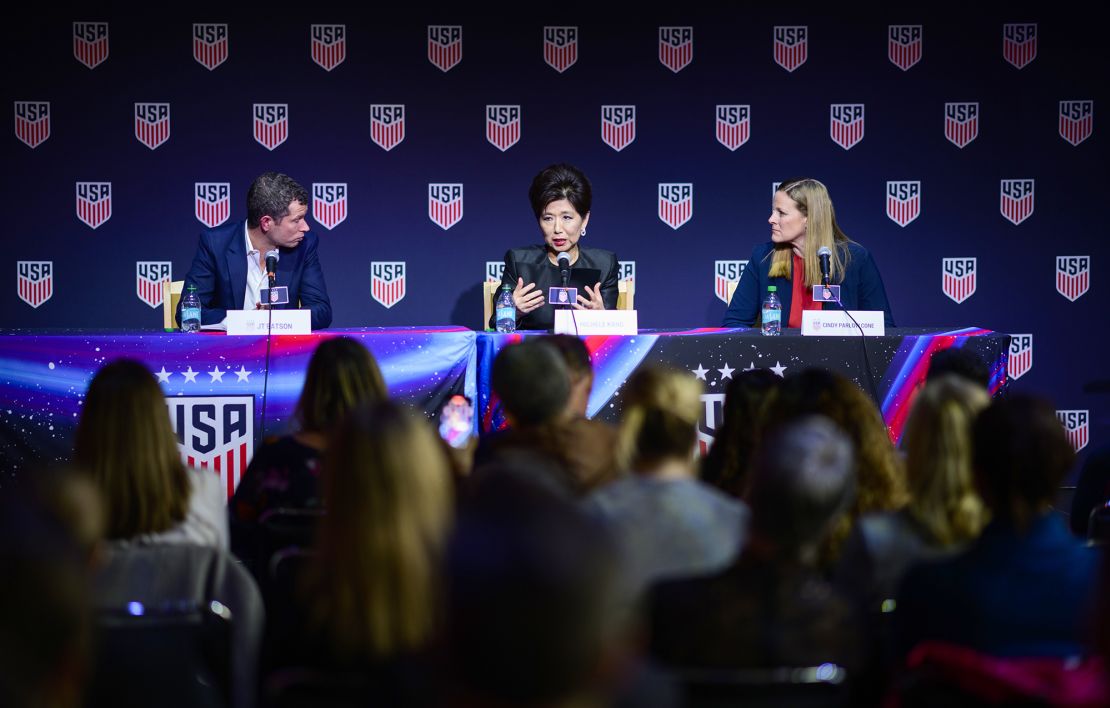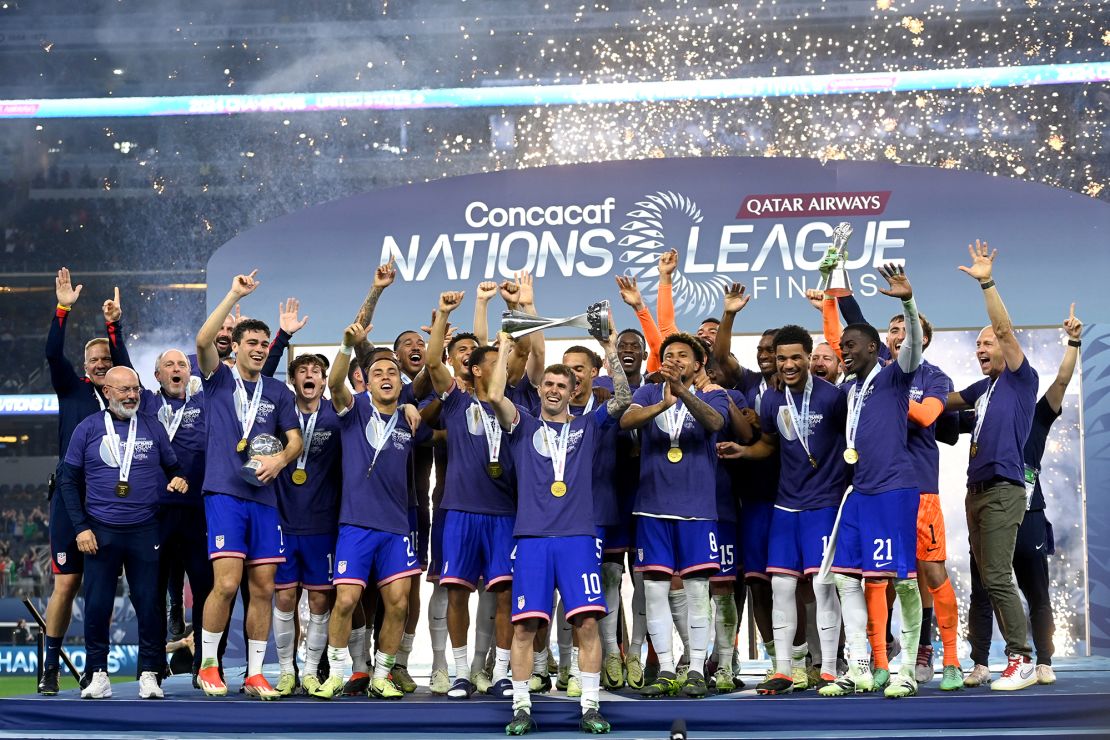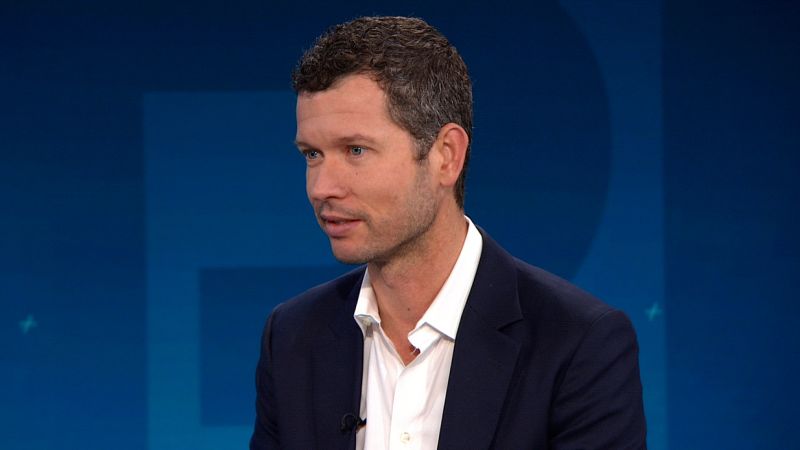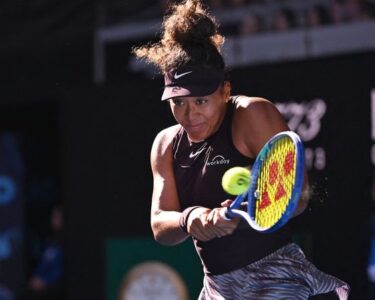US Soccer CEO JT Batson says that he’s open to job-sharing in top coaching roles, a proposal floated by US Women’s National Team (USWNT) head coach Emma Hayes last week.
Speaking ahead of the USWNT’s 0-0 draw with England at Wembley Stadium, Hayes mentioned the arrangement, which is already used by various college soccer programs, as a way of providing more opportunities for female coaches at the top level. She did not relate the proposal to her own position as head coach and that of men’s national team coach Mauricio Pochettino.
“Absolutely,” said Batson when asked by CNN Sport’s Amanda Davies whether he would be open to the idea. “One of the driving factors behind us building a national training center for the first time is around creating those opportunities for a lot more mentorship, a lot more job-sharing, a lot more seconds, a lot more opportunities to collaborate as folks are growing in their career.
“We’ve got this incredible growing market in soccer, and specifically women’s soccer, and you need great talent off the field to be able to support those on the field. We need to have a broad-based investment in programs, and job sharing is a great example of those.”
The initiative would be a huge break from the norm – soccer’s ventures into joint management have been few and far between and have come with little success at the highest level. Nonetheless, as Hayes pointed out, it would make it easier for female coaches to balance working in the game with facing challenges, such as pregnancy, which their male counterparts do not have to deal with.
With both Hayes and Pochettino having arrived as head coaches in 2024, Batson is excited about the possibilities for both national teams, as well as the state of the game in the US and worldwide.
“It’s magical to have Emma and Mauricio working together, being able to collaborate,” he said.
However, he would not be drawn on whether US Soccer would renegotiate Hayes’ contract to match the terms offered to her USMNT counterpart. The English manager earns $1.6 million per year, matching the contract which Pochettino’s predecessor, Gregg Berhalter, received – a move which drew praise for advancing the cause of women’s equality within the sport.
But with reports that Pochettino, who took over from Berhalter in September, is earning $6 million in his role, Batson declined to answer questions over whether Hayes deserved to have her contract renegotiated.
“We don’t have very many employees across the company who are paid exactly the same contract, because, of course, they’re on different contract terms,” he said. “But Emma is someone that we’re incredibly excited about, and we’re very proud of the work that she’s done, and we’re very proud of the work that we’re doing going forward.
“We are with all of our employees. We’re constantly looking to make sure that they’re compensated in the way that sets them up for success, and make sure that we can continue to achieve the big things that we’re trying to achieve as an organization.”

Pochettino’s contract, which makes him the highest-paid manager in USMNT history, is just one of a number of investments that US Soccer has made over the past year and a half.
Atlanta Falcons and Atlanta United FC owner Arthur M. Blank pledged $50 million to US Soccer’s National Training Center in September 2023, which was followed by Washington Spirit owner Michele Kang’s donation of $30 million to the federation’s women’s and girls’ programs in November 2024.
According to Batson, Kang’s commitment to speaking out about how to improve women’s soccer is even more important than the money she is able to pledge.
“It’s huge, and obviously, the money matters,” he said. “But even more important is having someone like Michele Kang coming out and articulating why investing in the broader ecosystem is so important, and that for women’s soccer, for women’s football, to continue to grow and to achieve new heights, we need to invest in everything (that is) a part of the women’s game, in coaching and refereeing and player development broadly, so that we’re elevating the entire ecosystem, not just the 78,000 at Wembley for a huge game.”
As the United States prepares to co-host the biggest ever FIFA World Cup – featuring 48 teams – alongside Mexico and Canada in 2026 on the men’s side of the game, Batson is in favor of the expansion of the women’s tournament to continue to drive the growth of the game.
“We’re actually huge proponents of also expanding the Women’s World Cup,” he said. “A World Cup will lead to more and more investment, which (is) going to benefit more and more kids around the world,” he added.

Of course, million-dollar investments and World Cup expansions all mean a lot less for the growth of US soccer if the national teams are not doing their jobs on the pitch. Batson concluded by outlining his hopes for the USMNT as it builds up to the 2026 World Cup in the US, Canada and Mexico.
“Going into it, we need to give people a reason to believe. And, you know, the players need to believe, the staff needs to believe, and ultimately, the country needs to believe,” he said.
“(The players’) feedback has been (that) the environment within the men’s national team camp has been among the best they’ve ever seen anywhere in the world. The players have been incredibly energetic and receptive to the ideas. The staff has been bought in and excited,” he continued.
“We’ve seen that from the moment that we announced Mauricio, the sort of vibe around like, ‘Oh, wow. You guys really are going for it. You really do care. You really do want to go do big things.’
“I think people are going to have a lot of fun.”






